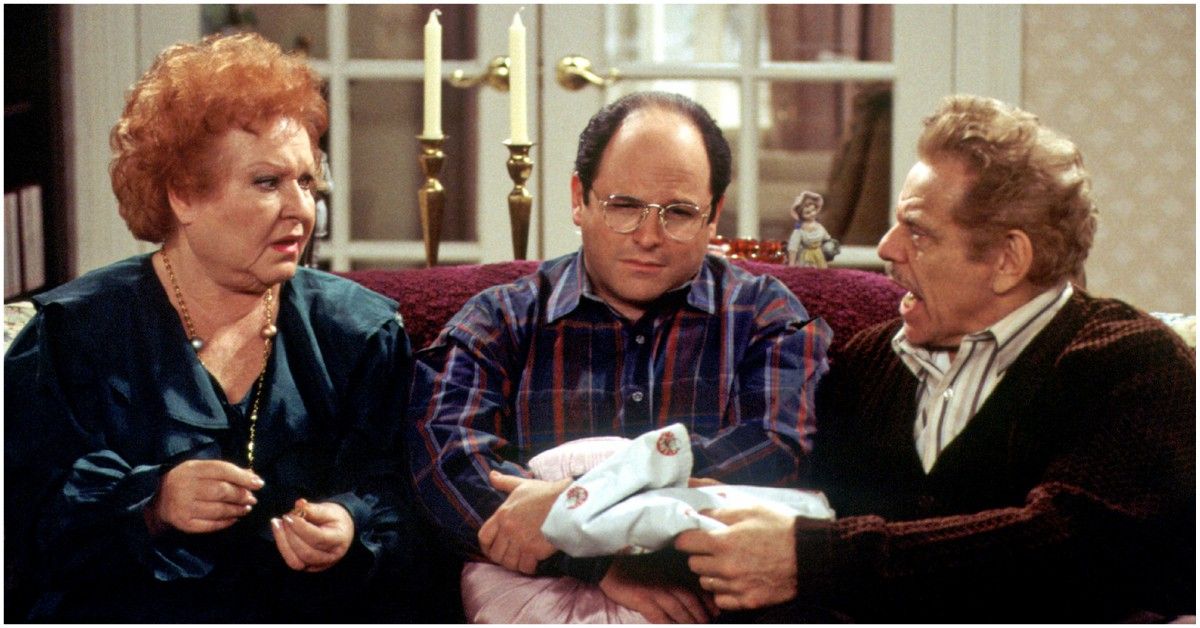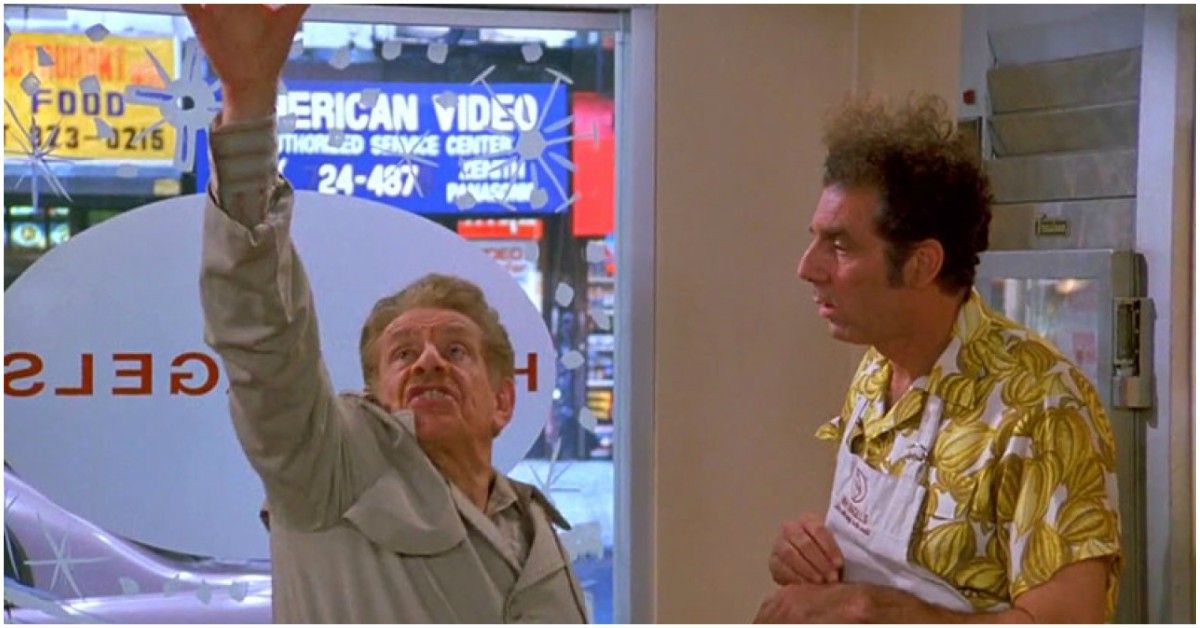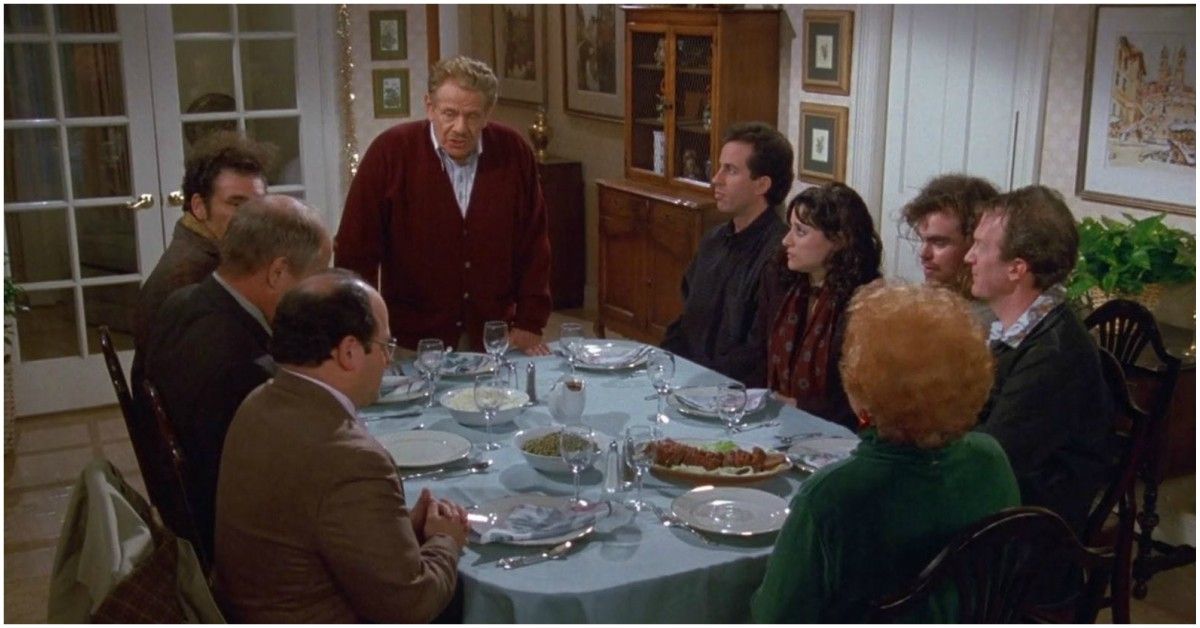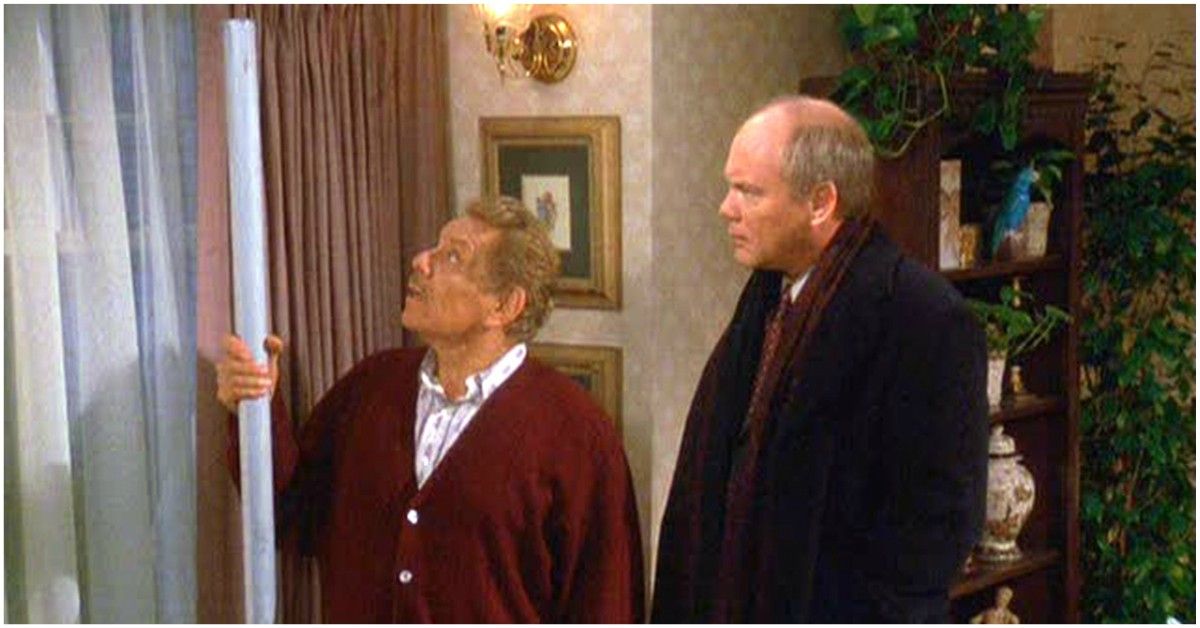Seinfeld is easily the most quotable show of all time. While other sitcoms, such as Friends or The Office are not far behind, Seinfeld-isms remain part of our culture and are colloquialisms all over the world. It's remarkable that best-buddies Larry David and Jerry Seinfeld were able to create something so ever-lasting. Of course, the fact that the show never goes away has only added to the enormous net-worths the cast of the show currently has.
While Jerry Seinfeld has contributed much of the comedy to Seinfeld, it's Larry David's life experiences that have influenced the show the most. In fact, his terrible experience at Saturday Night Live ultimately created one of the best episodes of the show.
But when it comes to Festivus... neither Larry nor Jerry should get the credit.
The anti-establishment/ anti-consumerism December holiday that George Constanza's father created actually had no roots in the minds of their of the show's co-creators. It actually came from the personal life of one of the writers...
Here's the true origin of "Festivus for the rest of us"...
There Was A Real-Life Frank Costanza... Sort Of
In an in-depth article by UPROXX, the true origin of the Seinfeld holiday was discovered and it has everything to do with a man named Daniel O'Keefe, the father of Seinfeld writer Dan O'Keefe.
Of course, nowadays, Festivus has become a staple alongside Christmas, Hannukah, and Kwanzaa. Of course, it's become entirely a 'Seinfeld holiday' and for those who don't associate with organized religion.
You can buy Festivus shirts, sweaters, mugs, and even buy your own pole... Because, if you remember correctly, a pole is an essential decoration on Festivus. Other traditions include the airing of grievances and feats of strength...
Jeez... if you haven't seen this Seinfeld episode ("The Strike") in a while, go and re-watch... it's a classic! And it's easily one of the late-Jerry Stiller's best as Frank Costanza.
Of course, the real-life Frank Costanza was nothing like what we saw on TV. Although, author Daniel O'Keefe did hate the commercial and religious aspects of Christmas and therefore decided to create his own holiday.
While Daniel's son became known for writing Seinfeld episodes like "The Frogger", "The Blood", and "The Pothole", he's best known for stealing his father's concept and applying it to "The Strike".
"It is a fake holiday my dad made up in the ’60s to celebrate the anniversary of his first date with my mother, and it was something that we celebrated as a family in a very peculiar way through the ‘70s, and then I never spoke of it again,” Dan O’Keefe told UPROXX.
Dan never did mention it as an idea for Seinfeld until he accidentally spilled the beans to writers Jeff Schaffer and Alec Berg. The idea eventually spread throughout the writer's room and Dan regretted it... After all, his father would definitely not approve of profiting off the idea.
But the writers, including Jerry Seinfeld, believed that 'real-stories' were always the best windows to look through for plots for the show.
The Real Festivus Was Different Than The One In The Show
During the interview about Festivus with UPROXX, Dan O'Keefe explained the reservations he had for sharing his father's holiday with the Seinfeld writers.
"At the time I was just a terrified staff writer hoping that this episode wouldn’t let everyone in America know that my family suffers from mental illness," Dan said before going into what his family's Festivus was really like.
"Each Festivus had a theme, which were always depressing. One was, ‘Is there light at the end of the tunnel?’ ‘Are we too easily made glad?’ was one, I believe. My grandmother died the next year and it was ‘A Festivus for the Rest of Us,’ meaning the living and not the departed. It’s pretty goddamn weird."
Of course, that line had a completely different meaning in Seinfeld.
"The reality of the holiday was too peculiar to show on television," Dan explained. "The real symbol of the holiday was a clock inside a bag nailed to the wall and nearby a sign that says, ‘F*** Fascism.’ That doesn’t fly on network TV. Either Alec or Jeff came up with the idea of the pole and the strength to weight ratio."
The holiday could also take place at any time of the year and wasn't just relegated to Christmas. However, one specific element in the Seinfeld episode was entirely accurate... The airing of grievances...
"Airing your grievances was a large portion of the original and it was done into a tape recorder."
What Did Dan's Dad Think About Festivus On 'Seinfeld'?
"My mother’s attitude was, ‘That’s nice honey,’" Dan said when asked what his parents thought about Festivus on Seinfeld. "My father was at first enraged that he thought he was being made fun of by me, which then subsequently turned into consideration, then exuberance because he thought he’d been vindicated and this had, in fact, justified every decision he had made in his entire life. He would use that somehow to defend some very dubious things. So he completely embraced it, yes, in a matter of months."




